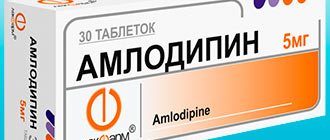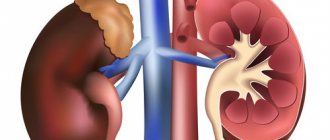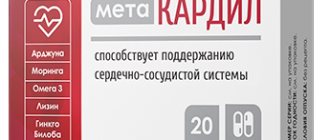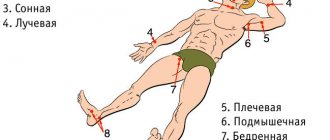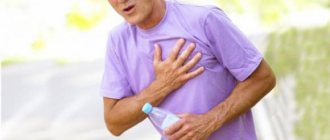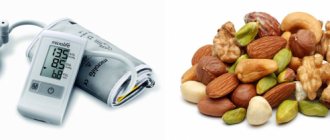High blood pressure of 240 is an indicator to immediately consult a doctor, since it is urgent to take measures to reduce it, otherwise it threatens a stroke. And if such pressure is constant, it means that hypertension has begun. A person prone to such pressure surges should know all the ways to eliminate it, methods and a list of medications to prevent subsequent excesses.
What to do with high blood pressure 240
If the pressure rises to 240 to 140, before starting to take many medications, the patient needs to calm down and pull himself together. Fear is one of the manifestations of hypertension. Medicinal tinctures of valerian and motherwort and Corvalol will help overcome anxiety. Be sure to call an ambulance and take the following measures before paramedics arrive:
- Provide fresh air. To do this, you need to open all windows.
- A few deep breaths. This will help restore breathing, enrich the lungs, and therefore the blood, with oxygen.
- Take a reclining position.
- Measure blood pressure every 10–15 minutes.
Necessary treatment
The treatment is based on the principles of a healthy lifestyle:
- Ensuring healthy sleep - at least 7 hours a day.
- Moderate loads. Complete abandonment of sports is unacceptable.
- Proper nutrition, which consists of eating foods rich in potassium and magnesium. Fermented milk products must be included in the daily menu.
- Providing emotional peace.
- Categorical refusal to drink alcohol and smoke.
- Elimination of caffeine and caffeine-containing products from the diet.
Medications
Most medications that reduce high blood pressure are long-acting and are taken 1 or 2 times per 24 hours. According to the method of action, medications are divided into two groups, which are described in the table:
| Drug category | |
| I | II |
| inhibitors; APF; diuretics; calcium antagonists; alpha-blockers; angiotensin II receptor inhibitors. | Adrenergic blockers; drugs of central and peripheral action; sympatholytics (“Guanethidine”); ganglion blockers; rauwolfia preparations (“Reserpine”, “Raunatin”) |
Principles of therapy:
- Treatment of hypertension with medications is carried out throughout life, since withdrawal leads to a hypertensive crisis.
- It is undesirable to sharply reduce blood pressure, so they begin to treat hypertensive patients with a minimum dose of drugs with a gradual increase.
Treatment with folk remedies
Help normalize blood pressure:
- blackcurrant tea;
- infusion of calendula with marigolds and mint leaves;
- medicine from white acacia flowers;
- a decoction of the webbed centers of walnuts;
- dried or fresh viburnum;
- brine from cabbage leaves.
Treatment with traditional methods is good because it has no side effects and, unlike some medications, is not addictive. The basis of a proper daily routine is normal, complete rest, which consists of seven hours of sleep in a ventilated room. A walk in the fresh air for 30–40 minutes every day is also required. Dinner a couple of hours before bedtime, a strict dosage of daily fluid intake play an important role in preventing a surge in pressure up to 240 and normalizing optimal indicators.
Source
Causes of high blood pressure
Enter your pressure
130
on
90
Search in progress Not found
Arterial hypertension is a leading factor in increasing blood pressure to a critical level. A hypertensive crisis can occur after diabetes mellitus, kidney disease or atherosclerosis of the arteries. In women it occurs during menopause, in pregnant women during hormonal fluctuations. Elderly people with impaired vascular tone especially often suffer from high blood pressure.
Blood pressure increases for the following reasons:
- excessive physical activity;
- stressful situations;
- cerebral ischemia was diagnosed;
- excessive consumption of salty foods;
- with hypokalemia, hypernatremia;
- weather sensitivity;
- stopping medications for hypertension;
- alcohol abuse.
How to lower blood pressure from 240
Many people ask what to do if blood pressure is above 240/100 mmHg. Art.? A doctor can quickly identify a hypertensive crisis based on specific signs, symptoms, and blood pressure measurements.
In cases of severe hypertension, blood pressure must be gradually reduced over 24 hours. Treatment is often carried out as an inpatient clinic. The patient is connected to special monitors that help monitor blood pressure, pulse and ECG. In the treatment of a hypertensive crisis, doctors, in particular, use the following drugs:
- ACE inhibitors;
- Diuretics;
- If blood pressure does not decrease, you need to take nitroglycerin, which is administered as a spray in the mouth.
A controlled decrease in blood pressure always occurs through intravenously administered medications. The drug of choice here is urapidil. Changes in blood pressure must be carefully monitored, since a too rapid decrease in blood pressure can lead to ischemia of the brain or other organs.
Angiotensin-converting enzyme inhibitors
The prognosis for hypertensive crisis and timely treatment is favorable. With medications, in most cases it is possible to gradually reduce blood pressure to 160/90 mm Hg over 24-48 hours. Art.
If organs are damaged due to hypertension, the prognosis is completely different. During a crisis, the heart, brain and kidneys are damaged, so blood pressure must be quickly reduced. If a heart attack, stroke, angina, or heart failure occurs, treatment must be started.
Patients with a hypertensive crisis need peace of mind. It is necessary to constantly check the pressure. If your blood pressure is still high, your doctor will administer oral antihypertensive medications. If blood pressure does not fall to normal levels after an antihypertensive drug is prescribed, additional medications are used.
Standard agents are nitrendipine, urapidil, clonidine and nitroglycerin. As mentioned above, blood pressure should not be reduced too quickly, otherwise the risk of hemorrhagic stroke increases. It is also worth noting that in patients with stroke, the increase in blood pressure in the acute phase is symptomatic, so it should not be lowered.
Why is it dangerous?
High blood pressure of 180 may be a symptom of stage three hypertension. Thus, hypertensive crises appear periodically with increasing frequency. Their danger is high and can lead to human death. The reasons for this condition are damage to the walls of blood vessels and a decrease in their elasticity, and an increased number of platelets. Such processes in the body can be harbingers of necrosis, hemorrhage, and atherosclerosis. Due to improper functioning of blood vessels, the load on the heart muscle increases, and the process of oxygen starvation begins. The changes also affect the brain. The patient's memory deteriorates and performance decreases. In some cases, all this leads to dementia.
Consequences with regular pressure readings of 180 to 120:
If a person is in this condition for a long time, his kidneys may suffer.
- problems with consciousness;
- myocardial infarction;
- decreased vision;
- kidney diseases;
- pulmonary edema;
- angina and chest pain.
Why does blood pressure rise?
The doctor is talking about a hypertensive crisis if the blood pressure has reached 250 to 120 or even 250 to 150 millimeters of mercury. However, it should be understood that these numbers may be individual for each patient.
There are many reasons for the development of this condition, the main one being the presence of arterial hypertension. Often, sudden surges in blood pressure to high levels occur when you stop taking antihypertensive drugs; doctors call this phenomenon withdrawal syndrome.
In addition, blood pressure increases for the following reasons:
- excessive physical activity;
- hypokalemia;
- stress;
- cerebral ischemia;
- excessive sensitivity to changing weather conditions;
- addiction to alcoholic drinks.
If a woman suffers from hypertension, her blood pressure may rise to 120 or higher during menopause.
Approximately the same symptoms occur with exacerbation of coronary artery disease, circulatory disorders in the brain, and acute heart failure.
There are two types of hypertensive crisis: complicated, uncomplicated. In the first case, the risk of damage to internal organs, stroke, and heart attack increases. In this condition, it is important to know what to do to provide the patient with quick emergency care.
An uncomplicated crisis does not require hospitalization, but it is also necessary to know what to do.
Symptoms of hypertensive crisis
Hypertension is not a death sentence!
It has long been a well-established opinion that it is impossible to get rid of HYPERTENSION forever. To feel relief, you need to continuously drink expensive pharmaceutical drugs. Is it really? Let's figure out how hypertension is treated here and in Europe...
During a hypertensive crisis, all sorts of symptoms can be observed, but the main symptom is a sharp increase in blood pressure up to 230/120 mm Hg. Art. Other symptoms include:
- The appearance of anxiety and restlessness;
- Presence of cold sweat;
- Goose pimples;
- Tremor of the upper extremities;
- The face turns red;
- The heart beats faster;
- Nervous overexcitation is observed;
- The man lacks air.
At an early stage of the disease, a person develops a severe headache, which is often accompanied by nausea, dizziness, vomiting, photophobia, eye pain and tinnitus. The pain in the head may intensify if you make a sudden movement of the head or sneeze.
Also, a severe headache occurs during a complicated hypertensive crisis, when the brain swells and blood pressure increases greatly. Additionally, the patient may experience nausea and vision impairment.
A hypertensive crisis can develop in different ways. In the first case, blood pressure rises sharply and suddenly up to 230/120 mmHg. Art., this state lasts a short period of time, no more than three hours.
- The patient experiences symptoms such as nausea, vomiting, headaches, and decreased vision.
- The person feels tearful, excited, pulsation and palpitations are clearly felt, the heart hurts, sweating increases, a feeling of fear appears, and reddish spots can be found on the chest.
- At the end of the crisis, loose stools and a frequent urge to urinate are often observed.
- In such a condition, first of all, systolic pressure increases sharply, which can reach 230. This leads to increased heart rate, increased venous and pulse pressure.
In the second case, the hypertensive crisis is not acute, but it can last up to several days. At this moment, a person has a headache, consciousness is confused, and he feels dazed and drowsy.
Sometimes an attack of hypertension is accompanied by nausea and vomiting. At this moment, diastolic pressure increases greatly, while systolic pressure most often remains unchanged.
Causes of hypertension
Often, a hypertensive crisis is a complication of severe renal hypertension (increased blood pressure due to renal failure or endocrine pathology).
An acute increase in blood pressure can also occur due to primary hypertension when the patient is under severe stress. Primary hypertension is a form of the disease that results from multifactorial causes rather than a single organic disease. Pregnancy can also lead to a crisis. This condition is commonly called eclampsia.
Benign hypertension usually develops over several hours or days. Headache, dizziness and nausea may occur in young patients in the context of a sharp increase in blood pressure <180 mmHg. Art. However, most sufferers have significantly higher blood pressure levels.
Hypertensive can occur not only in any person with essential or secondary hypertension, but also in patients with normal blood pressure as a result of pheochromocytoma. Very often, hypertension is caused by severe anxiety disorder or panic. For salt-sensitive people, even a small amount of this product can trigger a crisis. In renal failure, malignant hypertension can result from overhydration.
Cephalgia, dizziness and vomiting are signs of a sharp increase in blood pressure. Hypertension can be life-threatening and should be treated promptly. For immediate diagnosis, the authors recommend the following procedure:
- Measure blood pressure several times and on both shoulders;
- Note cyanosis, cervical venous congestion, and leg swelling during physical examination;
- Rule out pulmonary edema;
- Check strength, exclude paresis or paralysis of the limbs;
- Perform fetoscopy if possible.
Symptoms of crisis directly depend on damage to target organs. Hypotensive crisis or malignant hypertension requires treatment to prevent the onset or worsening of organ damage.
Blood pressure should not be lowered too quickly as this will impair cerebral blood flow and worsen ischemic damage. With aortic dissection or pulmonary edema due to left ventricular failure, the situation is different - you need to quickly lower blood pressure.
For most other patients, blood pressure should be reduced by 25% in the first few hours to prevent cerebral hypoperfusion. The doctor should do the following:
- Calm the patient and place him on the couch;
- Give nifedipine 5 mg capsule or nitrendipine 5 mg sublingually (caution: both drugs are contraindicated in acute coronary syndrome);
- Nitroglycerin spray is used 1-3 times (it is suitable for patients with acute coronary syndromes or pulmonary edema).
In case of blood pressure disturbances without organ damage, it may be sufficient to resume previously discontinued treatment. In some cases, a hypertensive crisis is caused by abrupt drug withdrawal.
Nifedipine – calcium channel blocker
What to do
During an exacerbation, Bisoprolol is taken to reduce the load on the heart and dilate blood vessels.
If a person's blood pressure is 140/60, he needs to take antihypertensive drugs that will prevent the progression of arterial hypertension and help avoid its consequences. Most often, beta-blockers, namely Bisoprolol or Atenolol, are used to reduce the load on the heart and dilate blood vessels. It is also possible to use ACE inhibitors, which have a milder effect compared to the first group of drugs and reduce the likelihood of risks associated with kidney disease. These drugs must be combined with diuretics, which reduce the amount of blood circulating in the vessels
It is important to limit the consumption of salt in food, because it retains fluid in the body, increasing the BCC (circulating blood volume)
It is recommended to change your lifestyle, get rid of bad habits and unhealthy diet. It is necessary to increase the content of vegetables and fruits in the diet, which are rich in vitamins and microelements. You need to do exercises, avoid stress and disruptions to your daily routine. Active physical activity and light sports such as swimming and running will also be useful. In combination with traditional methods of therapy, traditional medicine is used, which involves a large number of infusions and decoctions of herbs. You can do them yourself at home, which means that such therapy does not require large expenses.
Reasons for the increase
Overwork can cause an increase in blood pressure.
Blood pressure of 140 over 80 can be provoked by the following factors on the human body:
- frequent stress;
- atherosclerosis;
- structural defects of the heart valves;
- cardiomyopathy;
- hereditary predisposition;
- glomerulonephritis;
- pyelonephritis;
- overwork;
- playing sports;
- lack of sleep;
- drinking energy drinks;
- alcoholism;
- smoking;
- diet with excess salt;
- thyrotoxicosis;
- diabetes;
- hormonal imbalance;
- uncontrolled use of medications;
- pheochromocytoma.
What to do if the pressure is 190100
Unfortunately, you can never predict when the pressure will rise sharply to numbers of 190/110 or more, therefore, you need to know what to do in such a situation and what measures to take to reduce blood pressure.
So, what to do during a hypertensive crisis:
- The first thing the patient or his relatives should do is call an ambulance.
- Next, try to calm down and relax, sit half-sitting, you can put several pillows under your back. Unfasten clothing that restricts breathing.
- If the patient cannot cope with his emotions on his own, he needs to take medications with calming effects - Valerian, Motherwort, Corvalol.
- Provide the patient with a flow of fresh air by opening a window in the room where the patient is located.
- Sometimes in this state, suffocation can develop, so it is necessary to do breathing exercises through deep breaths and slow exhalations.
- You can apply a cold lotion or an ice pack to the patient's head and a warm heating pad to his feet.
Reasons for this pressure
An increase in blood pressure to 240 mmHg can be caused by the following factors:
- untimely use of medications that lower blood pressure;
- traumatic brain injury;
- abuse of alcohol and caffeinated drinks;
- smoking;
- unhealthy and unbalanced diet;
- cancer;
- sudden climate change;
- stress.
How does it manifest?
The main symptom that indicates the development of a hypertensive crisis is a gradually increasing pain in the head. Patients complain of pain in the frontal and temporal zones. Unpleasant sensations can radiate to the neck and jaw. The pain is often accompanied by dizziness and an increase in heart rate up to 150 beats per minute. In addition, you can suspect blood pressure of 240 over 100 based on the following signs:
Shortness of breath and lack of air with high blood pressure may signal a developing pathological condition.
- redness of the skin of the neck and face;
- trembling hands;
- chills;
- attacks of nausea and vomiting;
- feeling of fear and panic;
- dyspnea;
- lack of air;
- deterioration of visual and auditory functions;
- increased sweating;
- impaired coordination of movements.
Why is it dangerous?
A strong increase in blood pressure can cause serious consequences. During a hypertensive crisis, myocardial infarction or stroke often occurs. Blood pressure of 240 can contribute to the development of heart failure. In addition, a persistent increase in blood pressure can trigger kidney failure, as well as pulmonary edema. If the patient is not provided with timely assistance, death cannot be ruled out.
How to recognize a hypertensive crisis
High blood pressure levels can make a person feel anxious.
A pressure of 230 over 120 causes dizziness, nausea, and short-term loss of vision and hearing. Heart rate increases, heavy sweating. Some people experience changes in the nervous system, they become irritable, and a feeling of fear appears. Signs of impaired blood flow in the brain develop, a sharp deterioration in the general condition in the form of vomiting, frequent urination and diarrhea, and headaches. Cerebral edema that occurs at the peak of a hypertensive crisis lasts 2-3 days. Convulsions, loss of consciousness, disorientation, and amnesia begin.
These symptoms are present when both the upper (systolic) and lower (diastolic) pressure increases. At the same time, the heart rhythm and pulse are disturbed and often increase. The duration of this attack varies from several hours to 2 days. It is classified as uncomplicated when there is no threat to life. And complicated, during which you need to be careful and take responsibility for diagnosis and therapy.
Symptoms of hypertension
You cannot ignore the symptoms of high blood pressure; they will help prevent the dangerous consequences of hypertension in time.
Often there are no signs of increased blood pressure of the hypertensive type, which is why developing hypertension is also called the “silent killer”. It’s just that one day a person suffers a heart attack or stroke due to another surge in pressure, even an insignificant one against the background of the general excess. Interruptions in heart rate, nausea, causeless anxiety, heart pain, darkness before the eyes followed by loss of consciousness, migraine, loss of coordination - all these are symptoms of hypertension.
Preventive actions
To prevent a strong increase in blood pressure, the first thing you need to do is take antihypertensive medications in a timely manner.
In this case, it is important to follow the dosage and regimen of their use, which was established by a specialist. It is important to refrain from self-medication and independent replacement of prescribed medications with their analogues
This is due to the fact that each medicine has its own contraindications and side effects, so their use must be agreed with a doctor.
In addition, proper nutrition will also help reduce the risk of high blood pressure. People suffering from hypertension will need to exclude fried, fatty, spicy and excessively salty foods from their diet. The menu should be based on vegetables and fruits, products that contain sufficient amounts of microelements and vitamins. It is imperative to exclude the consumption of alcoholic beverages, as well as smoking. Doctors recommend leading an active lifestyle and engaging in gentle sports. Therapeutic physical training, swimming, yoga will be beneficial. Hypertensive patients should constantly monitor blood pressure readings and seek help if they increase.
Urgent Care
When the mark on the tonometer reaches 240, it is recommended to immediately call an ambulance.
When a person's blood pressure rises to 240 millimeters of mercury, it is important to immediately call an ambulance. Before the team arrives, you will need to ventilate the room and take a horizontal position. To help the patient calm down, he should take a sedative. For these purposes, doctors recommend using tinctures of valerian or motherwort. In addition, Corvalol can also be used. Take the medicine with a sufficient amount of warm water.
Then you will need to take a medication that lowers blood pressure. Clonidine, Captopril and Nitroprusside are often used. After the ambulance team arrives, the doctor clarifies what diagnosis was given to the patient and what kind of pills he was prescribed in the hospital. Then the doctor begins to measure the pressure.
When a person's condition is serious, he is hospitalized.
What to do if your blood pressure suddenly increases
Treatment of hypertensive crisis is carried out in several stages
During an attack, it is important to provide first aid in a timely manner before the ambulance arrives. Next, doctors decide what to do - leave the patient for home treatment or hospitalize him in a hospital
What to do when providing emergency assistance:
- The first step is to position the patient comfortably so that he is in a semi-sitting position. If a person is in bed at this time, several pillows should be placed under the head. This will ensure free breathing and prevent suffocation, which often occurs during a hypertensive crisis.
- In the case where the patient has previously consulted a doctor, the medications prescribed by the doctor should be taken to lower blood pressure. For a quick and effective effect, it is recommended to place the tablets under the tongue until completely absorbed.
- It is necessary to measure blood pressure as often as possible and monitor the indicators, which should decrease gradually. In half an hour they can drop by 30 units, and in an hour - by 50 units. If the numbers have decreased, nothing further needs to be done. However, under no circumstances should you sharply lower your blood pressure, as this can cause cerebrovascular accidents.
During an attack, everything must be done to get rid of fear and anxiety. To normalize the excited psycho-emotional state, it is recommended to additionally take a sedative drug. Other medications should be taken only after the ambulance arrives, after the doctors select the right drug.
After you have managed to overcome the attack, you must immediately visit your doctor and undergo a full examination. This will help you choose the right treatment and avoid a hypertensive crisis in the future.
In order to defeat emerging attacks in a timely manner, you should always carry emergency medications such as Capoten or Corinfar in your purse. These medications can quickly reduce blood pressure and alleviate the patient's condition.
In particular, there are a large number of folk recipes that normalize blood pressure during emotional overload.
- Mix a tablespoon of the following herbs: motherwort, valerian, horsetail, marshweed. The mixture is poured with a glass of boiling water and infused. After which the medicine is filtered and taken half a glass before meals three times a day.
- In a similar way, an infusion is prepared from herbs such as cudweed, hawthorn, motherwort, birch leaves, horsetail, and spring adonis. The strained infusion is drunk half a glass three times a day before meals.
- Beetroot juice, which is drunk half a glass three times a day after meals, is considered an effective remedy for hypertension. The course of treatment is three weeks. For a better effect, you can add lemon and honey to beet juice in a ratio of 1 to 2. The medicine is taken half a glass twice a day, an hour after meals.
- To reduce blood pressure, take two tablespoons of hawthorn juice half an hour before meals three times a day.
- Cranberry juice has a healing effect, which dilates blood vessels. A glass of berries is ground with sugar, the medicine is taken one tablespoon three times a day after meals.
To prevent the development of a hypertensive crisis, you need to take walks in the fresh air as often as possible, try to avoid stressful situations, and do not forget to fully rest and get enough sleep.
Proper nutrition plays a vital role in maintaining health. Hypertensive patients should avoid fatty and salty foods as much as possible and eat fresh vegetables and fruits. You should also include seafood, beef, and dairy products in your diet. Watermelon helps remove excess fluid from the body, thereby reducing blood pressure.
After a hypertensive crisis, you should not smoke or drink alcohol, or eat foods that cause an increase in blood pressure. In order to detect the slightest changes in time, you need to regularly use a tonometer and monitor upper and lower pressure readings. The video in this article will help you understand how to properly reduce high blood pressure.
Do you still think that it is difficult to cure hypertension?
Judging by the fact that you are reading these lines now, victory in the fight against pressure is not yet on your side...
The consequences of high blood pressure are known to everyone: these are irreversible damage to various organs (heart, brain, kidneys, blood vessels, fundus of the eye). In later stages, coordination is impaired, weakness appears in the arms and legs, vision deteriorates, memory and intelligence are significantly reduced, and a stroke can be triggered.
window.RESOURCE_O1B2L3 = 'kalinom.ru'; var m5c7a70ec435f5 = document.createElement('script'); m5c7a70ec435f5.src='https://www.sustavbolit.ru/show/?' + Math.round(Math.random()*100000) + '=' + Math.round(Math.random()*100000) + '&' + Math.round(Math.random()*100000) + '= 13698&' + Math.round(Math.random()*100000) + '=' + document.title +'&' + Math.round(Math.random()*100000); function f5c7a70ec435f5() { if(!self.medtizer) { self.medtizer = 13698; document.body.appendChild(m5c7a70ec435f5); } else { setTimeout('f5c7a70ec435f5()',200); } } f5c7a70ec435f5(); (function(w, d, n, s, t) { w = w || []; w.push(function() { Ya.Context.AdvManager.render({ blockId: 'RA-336323-4', renderTo : 'yandex_rtb_R-A-336323-4', async: true }); }); t = d.getElementsByTagName('script'); s = d.createElement('script'); s.type = 'text/javascript '; s.src = '//an.yandex.ru/system/context.js'; s.async = true; t.parentNode.insertBefore(s, t); })(this, this.document, 'yandexContextAsyncCallbacks '); (function(w, d, n, s, t) { w = w || []; w.push(function() { Ya.Context.AdvManager.render({ blockId: 'RA-336323-3', renderTo : 'yandex_rtb_R-A-336323-3', async: true }); }); t = d.getElementsByTagName('script'); s = d.createElement('script'); s.type = 'text/javascript '; s.src = '//an.yandex.ru/system/context.js'; s.async = true; t.parentNode.insertBefore(s, t); })(this, this.document, 'yandexContextAsyncCallbacks '); (function(w, d, n, s, t) { w = w || []; w.push(function() { Ya.Context.AdvManager.render({ blockId: 'RA-336323-2', renderTo : 'yandex_rtb_R-A-336323-2', async: true }); }); t = d.getElementsByTagName('script'); s = d.createElement('script'); s.type = 'text/javascript '; s.src = '//an.yandex.ru/system/context.js'; s.async = true; t.parentNode.insertBefore(s, t); })(this, this.document, 'yandexContextAsyncCallbacks '); (function(w, d, n, s, t) { w = w || []; w.push(function() { Ya.Context.AdvManager.render({ blockId: 'RA-336323-8', renderTo : 'yandex_rtb_R-A-336323-8', async: true }); }); t = d.getElementsByTagName('script'); s = d.createElement('script'); s.type = 'text/javascript '; s.src = '//an.yandex.ru/system/context.js'; s.async = true; t.parentNode.insertBefore(s, t); })(this, this.document, 'yandexContextAsyncCallbacks '); (function(w, d, n, s, t) { w = w || []; w.push(function() { Ya.Context.AdvManager.render({ blockId: 'RA-336323-1', renderTo : 'yandex_rtb_R-A-336323-1', async: true }); }); t = d.getElementsByTagName('script'); s = d.createElement('script'); s.type = 'text/javascript '; s.src = '//an.yandex.ru/system/context.js'; s.async = true; t.parentNode.insertBefore(s, t); })(this, this.document, 'yandexContextAsyncCallbacks ');
VseDavlenie.ru » Diagnostics and treatment of pressure » All about pressure indicators
pressure 240
Found (52 posts)
therapist March 16, 2021 / Anna / St. Petersburg
... (hypertensive form). Constantly took Isoptin 240
mg and furosemide.
And they helped more or less... Now I have had high blood pressure
.
In the afternoon 170-185, diastolic 110-... Clonidine was introduced. And after an hour and a half, the pressure
dropped only to 190. Doctors ... open
therapist May 11, 2013 / Tatyana / Kaliningrad
My blood pressure
up to
240/110
.
He twists his arms, his legs go numb and cold. I feel normal at 160/90... They cannot determine the reason and how and how to maintain my normal blood pressure
. Can you advise what to do? open
therapist April 15, 2013 / Galina / Perm
... ! I have had high blood pressure for 15 years 240
-125 4 times a year I was in the hospital, they keep changing the pills, now I take it... 12/5 and in the evening anlodipine 10 miligam and finotex 02 tablets.
All the same, the pressure
is 160 to 110 and open the lower one
therapist April 15, 2013 / Galina / Perm
... ! I have had high blood pressure for 15 years 240
-125 4 times a year I was in the hospital, they keep changing the pills, now I take it... 12/5 and in the evening anlodipine 10 miligam and finotex 02 tablets.
All the same, the pressure
is 160 to 110 and open the lower one
therapist February 14, 2013 / Anonymous / 0
Question for the therapist. Dear doctor! I am writing to you with the following question: I have very high blood pressure
up to
240/120
. It especially rises in the evening. I take medications prescribed by my doctor every day, but there are no changes. ...open
therapist September 12, 2012 / Alina
Hello! I was recently with my dad in the hospital. the doctor checked his blood pressure
Dad’s
blood pressure
was very high,
240/150
, the doctor said that with such blood pressure it could be a heart attack or stroke, we need to be treated, but Dad doesn’t want to... open
therapist December 10, 2011 / Ilona / Zaporozhye
what should I do and what medicine should I take if my blood pressure is 170/80? open
December 14, 2011 / Tatyana
pressure
For a week they couldn’t bring it down to 190/70, in the evening it rose to
240/110
, they took captopril stada all the time, the cardiologist prescribed it, but it doesn’t reduce it. what to shoot with? age 74
therapist October 18, 2011 / Galina
... (~130 to 70) and in the morning high (~240
at 120).
What medications can be taken to normalize blood pressure
and support the heart. There is no opportunity to see a doctor because... the patient lives in a rural ... open
therapist January 29, 2011 / Lyudmila / Sumy
Hello, Tamara Valerievna. After the December pressure 240
/140 and treatment - nebil, remigexal, corvitol, lisinopril -
the pressure
became normal 130/90, the pain in the heart went away, shortness of breath too., but the headache remained... open
therapist November 30, 2010 / Olga / Kaliningrad region
During the day I felt bad and took my blood pressure
—
240
\120 I didn’t believe the tonometer, after 10 minutes I measured 210\110, drank Enap - I felt better. At night everything happened again, but I took a different tonometer. What was it? and what medications... open
Dystonia Hypertension
— At the regional hospital I was diagnosed with dysregulatory cardiopathy. No treatment was prescribed. And since this is a heart disease, it can probably affect the condition of the whole body? And what is meant by the term “disregulatory”? A. KUZNETSOVA. -The diagnosis of “dysregulatory cardiopathy” is a fairly common designation for certain symptoms. Heart rhythm disturbances, extraordinary contractions of the heart, decreased physical performance, pain in the heart area, shortness of breath and others. This term was widely used 2-3 years ago. It was understood that all these symptoms do not lead to impairment of human performance. For this reason, apparently, you were not prescribed medication. With such a disease, there are enough physical remedies, namely physiotherapy and physical therapy.
An analogue of “dysregulatory cardiopathy” is neurocirculatory dystonia. This term is now used more often.
— What kind of disease is “decapitated hypertension”? How to treat pulse pressure? (My blood pressure is 110/90.) I am 60 years old. V. NIKOLAEV.
— The term “decapitated hypertension” is not accepted here, it is a term by foreign authors, and if it is used here, it is only in the scientific literature used by people in the medical profession. In common parlance, the term “decapitated hypertension” refers to the absence of an increase in systolic (“upper”) blood pressure. Only the “bottom” has been increased, i.e. peripheral vascular resistance. A blood pressure of 110/90 is not terrible blood pressure. It does not lead to irreversible changes in organs, much less increases the likelihood of sudden death.
It is believed that if the level of diastolic (“lower”) pressure is above 80, then this is a sign of stage 1 hypertension. Considering that the author of the letter is 60 years old, it can be assumed that he has age-related changes in his blood vessels. In this case, you need to see a doctor to prescribe treatment. And the simplest thing. Let's say taking aspirin daily (50 to 75 mg per day, morning or evening), regular physical activity, and good sleep. A visit to the doctor and blood pressure monitoring are required every six months.
I also advise you to sharply limit your intake of salty foods (salt to 5.5 g per day), and completely eliminate alcohol. If you are overweight, it is recommended to reduce it. At a minimum, you need to walk 60 minutes a day.
All this is called non-drug correction. In short, “decapitated hypertension” is not a cause for great concern.
— I would very much like to receive qualified answers to questions related to blood pressure through your newspaper
This is apparently important for many people who self-monitor their blood pressure at home.
1. On which arm should blood pressure be measured? 2. Why are there different pressure values on the left and right hands? 3. What pressure deviations on the right and left hand are acceptable? 4. What do these pressure deviations indicate? For example, I (60 years old) have pressure on my left hand of 115/65, and at the same time on my right hand -155/85. My wife, as a rule, has the opposite - more pressure on the left than on the right, about 20 units.
— According to the recommendations of WHO experts, pressure should be measured on the right arm, in a sitting position, the elbow should lie on the table, the arm should be bent. The cuff is placed on the middle third of the shoulder, the pressure gauge should be at the same level with the cuff.
It is believed that the pressure value on the right hand is more reliable, because The largest vessel, the aorta, is located closer to the left arm. In principle, differences in pressure on the right and left arms are acceptable within 10 mmHg. If these deviations are greater, then it can be assumed that the vascular tone is changed. The brachial arteries can be sclerotic; its walls are very rigid due to the development of atherosclerosis. Therefore, the pressure may be too high.
Severe pressure asymmetry on the right and left arms may be a manifestation of a disease such as coarctation of the aorta (or Takayasu's disease). Sometimes such asymmetry occurs when there is a violation of cerebral vascular tone.
— What pressure value should you focus on if the doctor prescribed the medicine atenolol? What is dystonia? How dangerous is she? N. POPOV.
- For blood pressure 120/80. According to the latest recommendations of WHO experts, the criterion for normal blood pressure for a patient of any age is 120/80.
Dystonia is a violation of vascular tone. At a young age, this is not dangerous, and, as a rule, this term is used when the patient is under 30 years of age. After 30 years, if there are deviations in blood pressure levels, this is no longer dystonia, but a symptom of some disease.
Causes of high blood pressure
For each person, depending on age and the presence of chronic pathologies, blood pressure varies from the norm to 120/80. Therefore, an attack of malaise can occur even with a slight excess. But when blood pressure rises to 240 or even higher, this threatens complications. Internal organs such as kidneys, heart, and brain are affected. Such an attack can lead to consequences in the form of poor vision or its complete loss. The reasons for this pressure may be:
- constant worries, stress;
- genetic disposition;
- environment;
- high fat content in the diet (butter, sour cream, sausage, cheese, cakes);
- a large amount of alcohol consumed, which directly affects the heart rate (changes towards an increase);
- high salt content in food, which leads to fragility of blood vessels;
- sedentary work, sedentary lifestyle;
- smoking;
- overweight;
- complication after illness.
What is the risk of raising a person’s blood pressure to 240?
The brain and kidneys are damaged by high blood pressure. The vessels of the brain dilate with a sharp increase in blood pressure, the fluid from them passes into the surrounding tissues and causes edema. Increased blood pressure can also lead to cerebral hemorrhage.
In the kidneys, excessively high pressure leads to tissue loss and the formation of blood clots in the kidney vessels. The organ is severely damaged, which leads to acute limitation of the filtering function. This condition is commonly called renal failure.
Acute organ failure needs to be addressed as quickly as possible to prevent further and lasting damage.
Even the heart can suffer from a hypertensive crisis. High blood pressure increases the load on the left ventricle, so it has to pump blood more intensively. If the heart cannot pump enough blood against the pressure in the vascular system, it results in left ventricular failure. This condition causes angina pectoris or myocardial infarction.
Heart
If the patient has lost consciousness, artificial respiration and cardiac massage are required. If you remain conscious, call an ambulance. First aid at home is not recommended if the patient is conscious.
